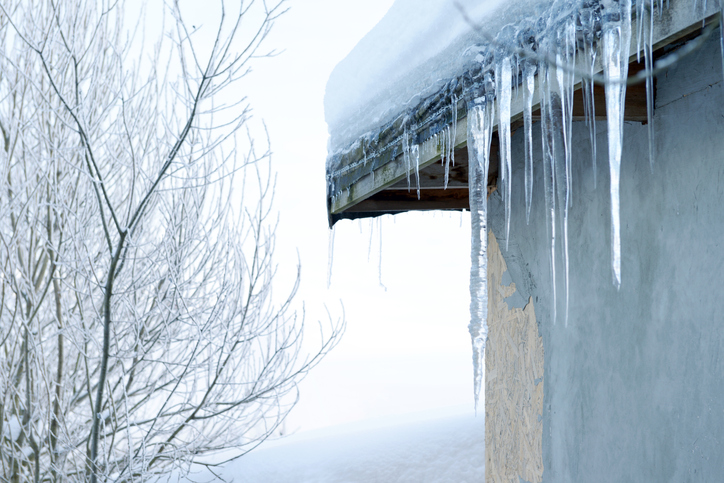
Winters in Cleveland can get quite lovely, with holiday lights brightening up the snowy landscape, and the brave ones daring the cold for a slew of winter activities. However, temperatures in the metro can get quite chilly, and with that, potential home disasters can’t be far behind.
How can you avoid these common winter mishaps? We’ve listed a few useful tips below.
- Roof snow buildup
Those icicles hanging from the edge of your roof may be pretty to look at, but they often spell trouble. Icicles often mean an ice dam has formed on your roof. Ice dams trap water and prevent melting snow and ice from running off your roof. And when water is trapped, they can seep onto ceilings and weaken the roof.
Ice dams are caused by warm air, usually coming from the attic, melting the snow on roofs. The melting snow then refreezes at the edges, which are not reached by the heat from the attic.
To prevent ice dams, here are some of the things you can do:
- Before the winter sets in, have your attic inspected to make sure it’s getting good insulation and doesn’t release heated air onto the roof. Find and plug any leaks on the ventilation.
- Remove snow buildup from your roof before it melts, but don’t climb up the roof as this is dangerous. Use an aluminum rake with a long handle so you can remove the snow while staying on the ground.
- Blow cold air onto the underside of the roof in the attic to freeze melted snow
- Frozen pipes
When your pipes are frozen, you won’t get proper water flow around the home. Worse, frozen pipes can burst and cause flooding in your home, and this can mean costly repairs.
Exposed outdoor pipes are naturally the most prone to freezing, but pipes in basements and other cold areas around the house can also freeze. To prevent this, insulate your pipes with inexpensive insulation foam before the temperatures drop. Disconnect all hoses and drain your water lines as part of winterizing your home.
- Faulty fireplaces
A blazing fireplace is one of the most welcoming things in winter. But problems with the fireplace can lead to disaster, and are among the biggest culprits in winter fires. In addition, a clogged or cracked chimney can lead to smoking problems, and can cause toxic fumes to penetrate your home.
To prevent fireplace problems, have your chimney cleaned and inspected before you use it in the winter. Make sure all cracks are filled and repaired, and creosote (fireplace residue) buildup is removed.
Other things you can do to avoid problems with your fireplace include:
- Ensuring the damper is open before you light a fire
- Making sure the wood you use is dry and has been properly aged
- Avoiding turning on the furnace at the same time as lighting up the fireplace
For more tips on how to care for your home all year round, check out our blog.
Looking to buy or sell a home in Greater Cleveland? Work with an expert in Cleveland real estate. Call me, Michelle McQuade, at 440.247.8900 or get in touch here.

